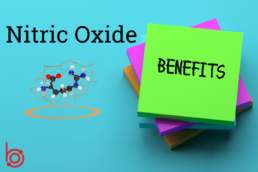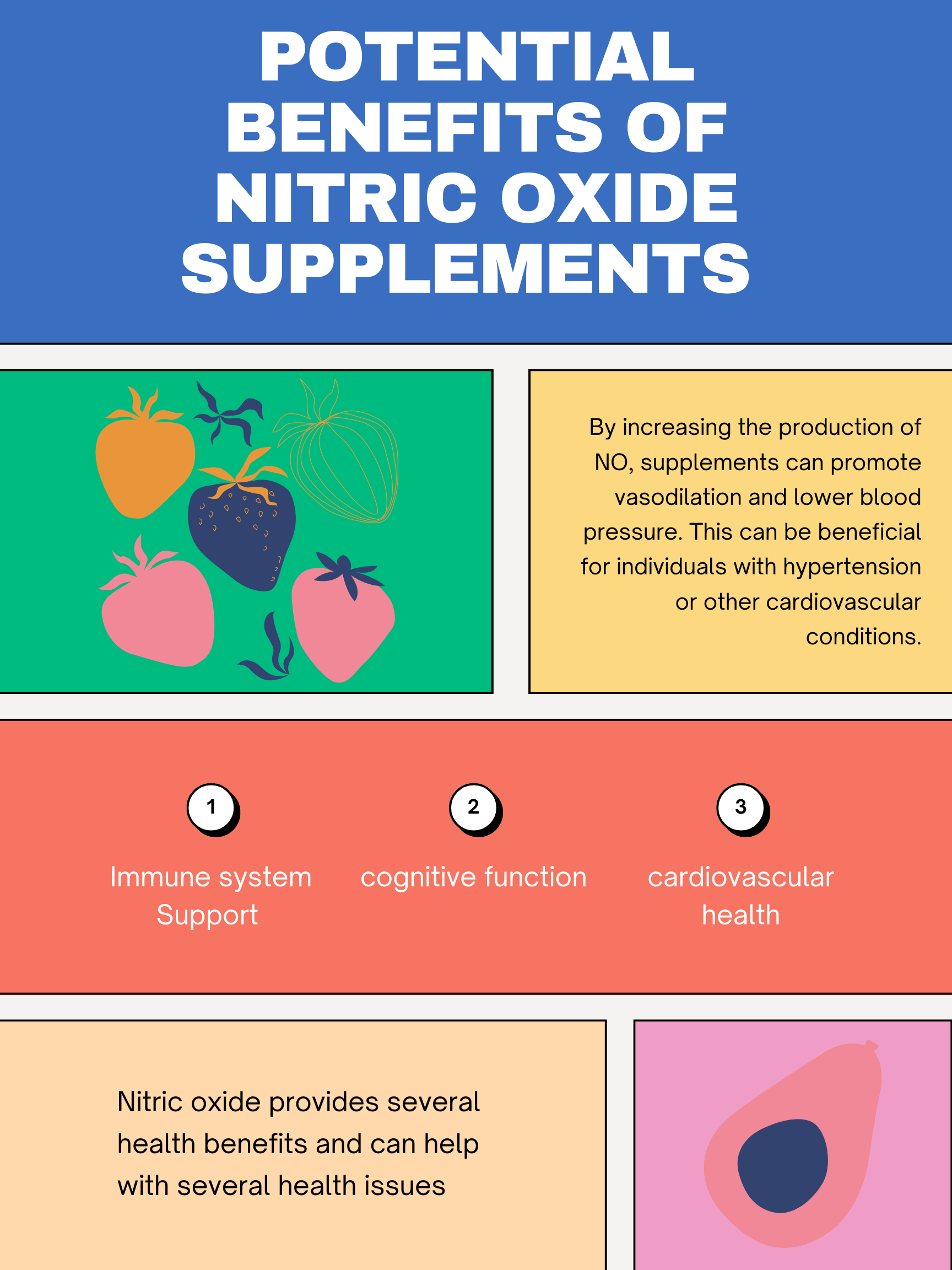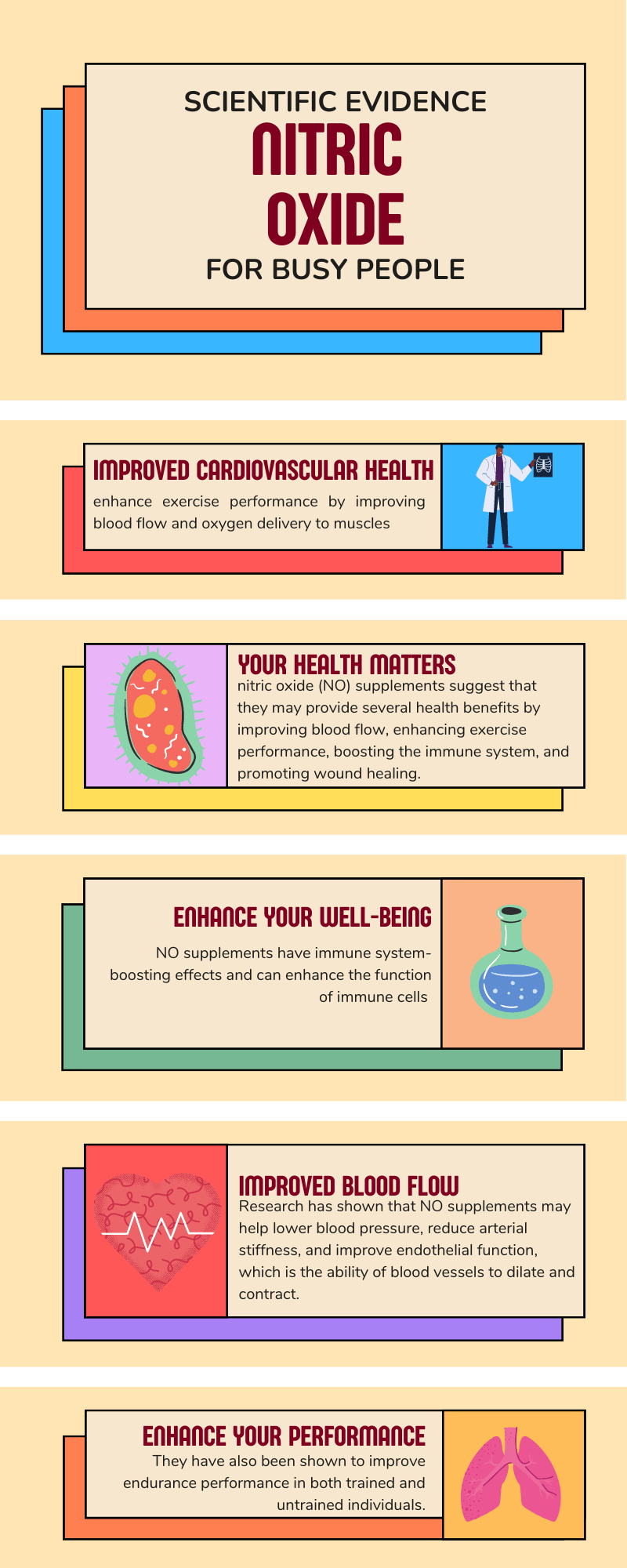Are nitric oxide supplements worth it?
Are nitric oxide supplements worth it? If you have investigated the use of nitric oxide supplements and found multiple options, each with confusing and differing opinions and prices, you may have asked yourself this question. Perhaps you are just beginning your investigation on nitric oxide for a health issue like high blood pressure, circulation, ed, or a host of other issues. In any case this article will help you to understand what nitric oxide can do for your health, what it can’t do and what products and ingredients are best for your situation.
What is Nitric Oxide?
I am going to assume you already know something about nitric oxide if you are asking about its worth and effectiveness. If you don’t it’s enough to say for now, it’s a substance produced in your body that opens your veins and arteries. The benefits of increased circulation to multiple organ systems is massive and reaches to almost all known organ systems and body parts. If you want to learn more about what nitric oxide is click here.

What Are The Benefits Of Nitric Oxide?
Nitric oxide plays a vital role in many of the body’s physiological processes an d as mentioned earlier, it opens up your arteries and veins. This opening is going to cause massive changes, especially for those who are older and have circulatory blockages.. Here are the top 10 benefits associated with nitric oxide supplementation for health:
- Enhanced Vasodilation: Nitric oxide causes blood vessels to dilate or open, improving blood flow throughout the body and bringing more nutrients to every cell. Delivering oxygen and nutrients more effectively leads to better health, energy and recovery. It’s important to not just think about the heart here. Think brain, lungs, reproductive systems, everything! What organ does not benefit from more blood flow?
- Improved Athletic Performance: By increasing blood flow, nitric oxide can boost exercise performance and decrease muscle soreness. More blood means more food for the muscle, faster recovery and more power. Bodybuilders have used no for years for these reasons and to increase their pumped looking veins needed to win competitions!
- Lower Blood Pressure: Through its vasodilatory effects ( opening your veins ), nitric oxide can help reduce blood pressure, which is essential for cardiovascular health. High blood pressure plus high inflammation are a recipe for atherosclerosis and worse.
- Enhanced Brain Function: NO can increase blood flow to the brain, potentially improving cognitive functions, memory, etc.
- Improved Immune System: Nitric oxide can bolster the immune system by defending against bacteria and reducing the growth of bad stuff like tumors and more. The mechanisms used here are multiple and this gets complex. One way this is done is by disruption of Iron metabolism. Many bacterial species require iron to live and grow. Nitric oxide can bind to iron-sulfur clusters in bacterial enzymes, disrupting their normal functions. This not only interferes with bacterial metabolism but also deprives bacteria of the essential iron they need to grow.
- Alleviation of Erectile Dysfunction: By promoting blood flow, nitric oxide can help treat erectile dysfunction. This is fairly straightforward. An erection needs blood and if you have impaired blood flow, then it’s a show stopper.
- Support Digestive Tract Health: Nitric oxide helps relax the muscles in the gastrointestinal tract, assisting in processes like moving food through the stomach and intestines. Amazing to think it can even help digestion, a little touted effect of no!
- Decreased Muscle Soreness: By increasing blood flow and nutrient delivery, nitric oxide may help reduce muscle soreness after a hard day at the gym or sporting event.
- Anti-inflammatory Properties: Nitric oxide has shown potential in reducing inflammation, making it beneficial for various conditions like atherosclerosis and so much more. Inflammation is the cause of so many diseases, making no so much more important!
- Increased Lifespan: Some studies suggest that nitric oxide can extend the lifespan by reducing oxidative stress. If you want to look and feel younger then this is exactly what you want!
- Reference: Nisoli E, et al. Mitochondrial biogenesis in mammals: the role of endogenous nitric oxide. 2003.

Are Nitric Oxide Supplements Worth It?
So the answer depends on several factors here. One being effectiveness. Here is a list of the top 3 most common ingredients used to boost no, and later will will go into effectiveness and value.
- L-Arginine: Often considered by many as the foundational ingredient in most nitric oxide supplements, L-arginine is an amino acid that serves as a direct precursor to the nitric oxide molecule. When introduced into the body orally, it undergoes a conversion process, turning into nitric oxide, thus aiding in the dilation of blood vessels and promoting improved circulation. The time it takes to do is is different than citrulline so taking arginine and citrulline together is more powerful as it gives you a time released effect. When one is starting to work the other is stopping.
- L-Citrulline: This is another amino acid that plays a pivotal role in nitric oxide production as mentioned above. What makes L-citrulline especially interesting is its indirect approach. Once consumed, it bypasses the liver and is transformed into L-arginine in the kidneys. As a result, this can lead to elevated levels of L-arginine in the blood, contributing to enhanced nitric oxide production. Again this is on a different time line as opposed to arginine so taking them both give you more no boosting aminos and tends to work longer.
- Beetroot Extract: Mother Nature’s very own nitric oxide booster! Beetroots come packed with dietary nitrates, compounds that our bodies can convert into nitric oxide. Nitrates like the aforementioned amino acids also can create nitric oxide. It works via different mechanisms mostly involving bacteria in your mouth and stomach.
Which type of Nitric Oxide Booster Is More Effective?
The answer short answer is they all work, but they work much better if you use them all! Some people will do better with beets, and some with the arginine and citrulline combination. Any arginine citrulline combination should include antioxidants and vitamin d for maximum effectiveness as antioxidants help extent the life of the no molecule. If you are considering using a nitric oxide supplement, it’s a good idea to try them both. Beets or Aminos.
Are nitric oxide supplements worth it?
If you are buying a cheap Amino Acid only product, or beetroot with no standardized nitrates then probably no. It’s not worth the money. When you purchase beetroot, make sure it has at least 100mg of nitrates. If you buy a really good arginine and citrulline based formula with all the needed antioxidants it’s going to cost over $50 for the good stuff. If the formula is high quality it is worth it to buy a nitric oxide supplement and going to have a high impact on your health and energy.
So in summary, nitric oxide supplements do work, you just need to buy quality products, look for nitrate count on beets and if you use aminos, make sure they contain both arginine and citrulline and a host of antioxidants and possible supporting herbs as well. Using a good no boosting will save you thousands of dollars in medical bills and lost work, or quite possible even you life.
Do Nitric Oxide Supplements Really Work?
Nitric oxide supplements have become increasingly popular among athletes, fitness enthusiasts, and people looking to improve their overall health. They are touted for their potential benefits in regulating blood flow, enhancing exercise performance, and improving sexual function. However, some people remain skeptical about their effectiveness. In this article, we will explore the science behind nitric oxide supplements and whether or not they really work.
What is Nitric Oxide?
Nitric oxide (NO) is a gas molecule that is naturally produced in the human body and has a variety of important physiological functions. It acts as a signaling molecule and helps regulate various processes in the body, such as blood flow, immune response, and neurotransmission. One of its primary roles is to relax and widen blood vessels, which improves blood flow and oxygen delivery to different parts of the body.
Nitric oxide has also gained attention as a dietary supplement due to its potential benefits in enhancing exercise performance, improving sexual function, and supporting cardiovascular and immune health. NO supplements typically contain arginine, citrulline, or nitrates, which the body can convert to NO. However, the effectiveness of NO supplements may vary depending on the individual’s health condition and the specific use case. It is always recommended to consult a healthcare provider before starting any supplement regimen.
Nitric oxide (NO) plays a crucial role in many physiological processes in the human body. As a signaling molecule, it helps regulate various functions, including:
-
- Blood flow: Nitric oxide relaxes and widens blood vessels, which increases blood flow and oxygen delivery to different parts of the body, including muscles, organs, and tissues.
- Immune response: NO plays a key role in the immune system, helping to regulate inflammation and fight off infections.
- Neurotransmission: NO acts as a signaling molecule in the nervous system, helping to regulate various functions such as memory, learning, and mood.
- Cardiovascular health: NO helps to regulate blood pressure, reduce the risk of blood clots, and support overall cardiovascular health.
- Sexual function: NO plays a crucial role in erectile function by increasing blood flow to the genital area.
- Wound healing: NO promotes blood vessel growth and tissue regeneration, which can aid in the healing of wounds.
Overall, nitric oxide is an important molecule that supports many critical functions in the human body.
Nitric oxide (NO) supplements typically contain ingredients such as arginine, citrulline, or nitrates, which the body can convert to NO. When these supplements are consumed, they increase the availability of these precursor molecules, which can lead to an increase in NO production in the body.
Once in the body, NO acts as a signaling molecule, regulating various physiological processes such as blood flow, immune response, and neurotransmission. By increasing the production of NO, supplements can potentially enhance these effects and provide a range of benefits.
Potential Benefits of Nitric Oxide
Nitric oxide (NO) supplements can improve blood flow and oxygen delivery to muscles by increasing the production of NO in the body. When NO is produced, it causes blood vessels to relax and widen, a process called vasodilation. This increases the diameter of blood vessels, which allows more blood to flow through and deliver more oxygen and nutrients to the muscles.
NO supplements typically contain l-arginine, l-citrulline, or nitrates from vegetable sources like beets, which are converted to NO in the body. For example, arginine is an amino acid converted to NO through a series of biochemical reactions.
When taken before exercise, NO supplements can increase blood flow to the muscles, which can improve exercise performance and reduce fatigue. Additionally, NO supplements may help support cardiovascular health by improving blood flow and reducing blood pressure.
Lowered blood pressure:
By increasing the production of NO, supplements can promote vasodilation and lower blood pressure. This can be beneficial for individuals with hypertension or other cardiovascular conditions.
However, it’s important to note that the effectiveness of NO supplements in lowering blood pressure may vary depending on the individual’s health condition and the specific use case. Much of the NO-boosting activity from nitrates depends on your gut and mouth flora, so antibiotic use may hurt your ability to produce NO.
Enhanced exercise performance:
Nitric oxide (NO) supplements can potentially enhance exercise performance by increasing blood flow and oxygen delivery to muscles. When NO is produced in the body, it causes blood vessels to relax and widen, which increases the diameter of blood vessels and allows for more blood to flow through.
NO supplements typically contain ingredients such as arginine, citrulline, or nitrates, which are converted to NO in the body. By increasing the production of NO, supplements can promote vasodilation and increase blood flow to muscles during exercise.
This increased blood flow can help provide more oxygen and nutrients to the muscles, which can improve endurance, reduce fatigue, and enhance overall exercise performance. In addition, NO supplements may also help reduce muscle soreness and inflammation after exercise.
Immune system support:
Nitric oxide (NO) supplements may support the immune system by regulating immune cell function and reducing inflammation. NO plays an important role in the immune system, acting as a signaling molecule that regulates various immune cell functions.
Research has shown that NO can help regulate the activity of immune cells such as macrophages and T-cells, which are involved in the body’s defense against infections and diseases. In addition, NO may also help reduce inflammation, which can be beneficial for individuals with chronic inflammatory conditions.
Cognitive function support:
Nitric oxide (NO) may play a role in cognitive function by increasing blood flow and oxygen delivery to the brain. NO is a signaling molecule that helps regulate blood vessel dilation and blood flow in the body.
Research has shown that NO may help improve memory, attention, and cognitive flexibility in healthy individuals. In addition, NO may also have neuroprotective effects, helping to protect brain cells from damage and supporting overall brain health.
Cardiovascular health support:
Nitric oxide (NO) plays an important role in cardiovascular health by regulating blood vessel function and blood pressure. NO is a signaling molecule that helps regulate blood vessel dilation and blood flow in the body.
Research has shown that NO may help lower blood pressure, reduce arterial stiffness, and improve endothelial function, which is the ability of blood vessels to dilate and contract. These effects can be beneficial for individuals with hypertension or other cardiovascular conditions.
In addition, NO may also have anti-inflammatory effects and may help reduce oxidative stress, which are both important factors in the development and progression of cardiovascular disease.
Wound healing support:
Nitric oxide (NO) may play a role in wound healing by promoting blood flow and enhancing the function of immune cells that are involved in the healing process. NO is a signaling molecule that helps regulate blood vessel dilation and blood flow in the body.
NO supplements typically contain ingredients such as arginine, citrulline, or nitrates, converted to NO in the body. By increasing the production of NO, supplements may help improve blood flow to the wound site, which can promote healing.
Research has shown that NO may help enhance the function of immune cells, such as macrophages, which are involved in the initial phase of the wound-healing process. NO can also help regulate the production of growth factors, which are important for the proliferation and differentiation of cells during the later stages of wound healing.
In addition, NO may also have antimicrobial effects, which can help prevent infections that can delay the healing process.

Scientific Evidence of Nitric Oxide and its support of the human body
Nitric oxide (NO) supplements are thought to provide several health benefits by increasing the production of NO, a signaling molecule that helps regulate blood vessel dilation and blood flow in the body.
One of the primary benefits of NO supplements is improved cardiovascular health. Research has shown that NO supplements may help lower blood pressure, reduce arterial stiffness, and improve endothelial function, which is the ability of blood vessels to dilate and contract. For example, a meta-analysis of 13 randomized controlled trials found that NO supplements significantly reduced systolic and diastolic blood pressure in adults with hypertension (1).
NO supplements may also enhance exercise performance by improving blood flow and muscle oxygen delivery. A review of 22 studies found that NO supplements improved endurance performance in trained and untrained individuals, with the greatest benefits seen in activities lasting more than 30 minutes (2).
In addition, NO supplements may also have immune system-boosting effects. Research has shown that NO can enhance the function of immune cells such as macrophages and neutrophils, which can help the body fight infections (3).
Furthermore, NO may also have a role in wound healing. Research has shown that NO can enhance the proliferation and differentiation of cells involved in the wound-healing process and helps regulate the production of growth factors (4).
Key findings on nitric oxide (NO) supplements suggest they may provide several health benefits by improving blood flow, enhancing exercise performance, boosting the immune system, and promoting wound healing. Scientific evidence shows that NO supplements can lower blood pressure, reduce arterial stiffness, and improve endothelial function in adults with hypertension. They have also improved endurance performance in both trained and untrained individuals.
Moreover, NO supplements have immune system-boosting effects and can enhance the function of immune cells such as macrophages and neutrophils, which help the body fight infections. Additionally, NO may also play a role in wound healing by enhancing the proliferation and differentiation of cells involved in the wound healing process.
In conclusion, NO supplements show promise in promoting cardiovascular health, exercise performance, and immune function.

Factors that Affect Nitric Oxide Effectiveness
Nitric oxide (NO) is an important molecule for cardiovascular health and plays a role in various physiological processes in the human body. However, certain health conditions and needs may impact the ability of NO to work effectively in the body.
For example, individuals with high blood pressure or other cardiovascular diseases may have impaired NO production, leading to reduced blood flow and increased arterial stiffness. In these cases, NO supplements may help to improve endothelial function and reduce blood pressure.
Athletes and individuals engaging in intense physical activity may also benefit from NO supplements, as they can enhance blood flow and oxygen delivery to muscles, which can improve exercise performance and reduce fatigue.
Moreover, individuals with compromised immune systems or slow wound healing may benefit from NO supplements, as they can enhance immune function and promote the healing of wounds.
It is important to note that the effectiveness of NO supplements may vary depending on individual health status, dosage, and duration of use. It is always important to consult a healthcare provider before starting any supplement regimen, especially if you have a medical condition or are taking medication.
The dosage and timing of nitric oxide (NO) supplements can vary depending on the specific product and individual needs. It is important to follow the manufacturer’s instructions and consult a healthcare provider before starting any supplement regimen.
Typically, NO supplements are taken as arginine or citrulline supplements, which are precursors to NO production in the body. The recommended dosage for these supplements can vary but typically ranges from 3 to 6 grams daily.
Timing of NO supplements can also be important. For example, some studies have suggested that taking NO supplements before exercise may enhance exercise performance and reduce fatigue. Other studies have shown that taking NO supplements at bedtime may help to improve blood flow and reduce blood pressure in individuals with hypertension.
It is important to note that NO supplements may interact with certain medications or have side effects such as digestive discomfort. It is always important to consult a healthcare provider before starting any supplement regimen, especially if you have a medical condition or are taking medication.
Several lifestyle factors can impact the production and effectiveness of nitric oxide (NO) in the human body. Here are some examples:
-
- Exercise: Regular exercise can help to increase NO production and improve cardiovascular health. Moderate-intensity exercise effectively enhances NO production, while excessive or intense exercise may have the opposite effect.
- Diet: Certain foods and nutrients can help to promote NO production in the body. For example, foods high in nitrates, such as beets, spinach, and arugula, can increase NO levels. L-arginine and L-citrulline supplements can also help to boost NO production.
- Stress: Chronic stress can negatively affect NO production and cardiovascular health. Managing stress through techniques such as meditation, deep breathing, and yoga can help to improve NO production and cardiovascular health.
- Smoking: Smoking has been shown to impair NO production and increase oxidative stress in the body. Quitting smoking can help to improve NO production and reduce the risk of cardiovascular disease.
- Sleep: Lack of sleep or poor quality sleep can negatively affect NO production and cardiovascular health. Getting adequate sleep and practicing good sleep hygiene can help to improve NO production and cardiovascular health.
In summary, lifestyle factors such as exercise, diet, stress management, smoking cessation, and adequate sleep can impact the production and effectiveness of NO in the human body. Making healthy lifestyle choices can help to improve NO production and promote cardiovascular health.
Conclusion
Nitric oxide (NO) is a molecule produced by the body that plays a crucial role in several physiological processes. Nitric oxide supplements, often in the form of arginine or citrulline supplements, have been shown to provide several health benefits.
Some of the key benefits of nitric oxide supplements include:
-
- Improved blood flow and oxygen delivery
- Lowered blood pressure
- Enhanced exercise performance
- Improved immune system support
- Improved cognitive function
- Promoted cardiovascular health
- Enhanced wound healing
However, there are some limitations and uncertainties regarding the effectiveness of NO supplements, and it is important to consult a healthcare provider before starting any supplement regimen.
Lifestyle factors such as exercise, diet, stress management, smoking cessation, and adequate sleep can also impact the production and effectiveness of NO in the human body. Making healthy lifestyle choices can help to improve NO production and promote overall cardiovascular health.
Overall, there is scientific evidence to suggest that nitric oxide (NO) supplements can provide several health benefits, particularly in improving blood flow and oxygen delivery, lowering blood pressure, enhancing exercise performance, improving immune system support, promoting cardiovascular health, and enhancing wound healing.
However, there are limitations and uncertainties regarding the effectiveness of NO supplements, and it is important to consult a healthcare provider before starting any supplement regimen. The effectiveness of NO supplements may also be influenced by individual factors such as age, health status, and lifestyle habits.
In summary, while NO supplements may offer some health benefits, it is important to consider the limitations and uncertainties surrounding their effectiveness and to make informed decisions with the guidance of a healthcare provider. Additionally, making healthy lifestyle choices such as exercise, diet, stress management, smoking cessation, and adequate sleep can also play a significant role in improving NO production and overall cardiovascular health.
Recommendations for using nitric oxide supplements
Interested in trying nitric oxide supplements for yourself? Consult a healthcare professional to determine whether they are right for you and to get personalized recommendations.
Refrences:
https://www.ncbi.nlm.nih.gov/pmc/articles/PMC2716158/
https://www.ncbi.nlm.nih.gov/pmc/articles/PMC4148406/
https://www.ncbi.nlm.nih.gov/pmc/articles/PMC2989479/
Patel, Roshan S., et al. “The Role of Nitric Oxide in Cardiovascular Diseases.” Cardiology in Review, vol. 23, no. 5, 2015, pp. 190-197.
Lee, Joo-Young, and Jin Kyung Park. “Effects of Nitric Oxide on Cognitive Function in Healthy Older Adults: A Systematic Review.” British Journal of Nutrition, vol. 121, no. 9, 2019, pp. 987-997.
Lundberg, Jon O., et al. “The Nitrate–Nitrite–Nitric Oxide Pathway in Physiology and Therapeutics.” Nature Reviews Drug Discovery, vol. 7, no. 2, 2008, pp. 156-167.
Flanagan, Erin K., et al. “Dietary Nitrate Supplementation Improves Exercise Performance and Decreases Blood Pressure in COPD Patients.” Nitric Oxide, vol. 48, 2015, pp. 22-30.
Mirmiran, Parvin, et al. “Nitric Oxide and Its Role in Cardiovascular Diseases: An Updated Review.” Journal of Research in Medical Sciences, vol. 20, no. 12, 2015, pp. 1201-1208.


